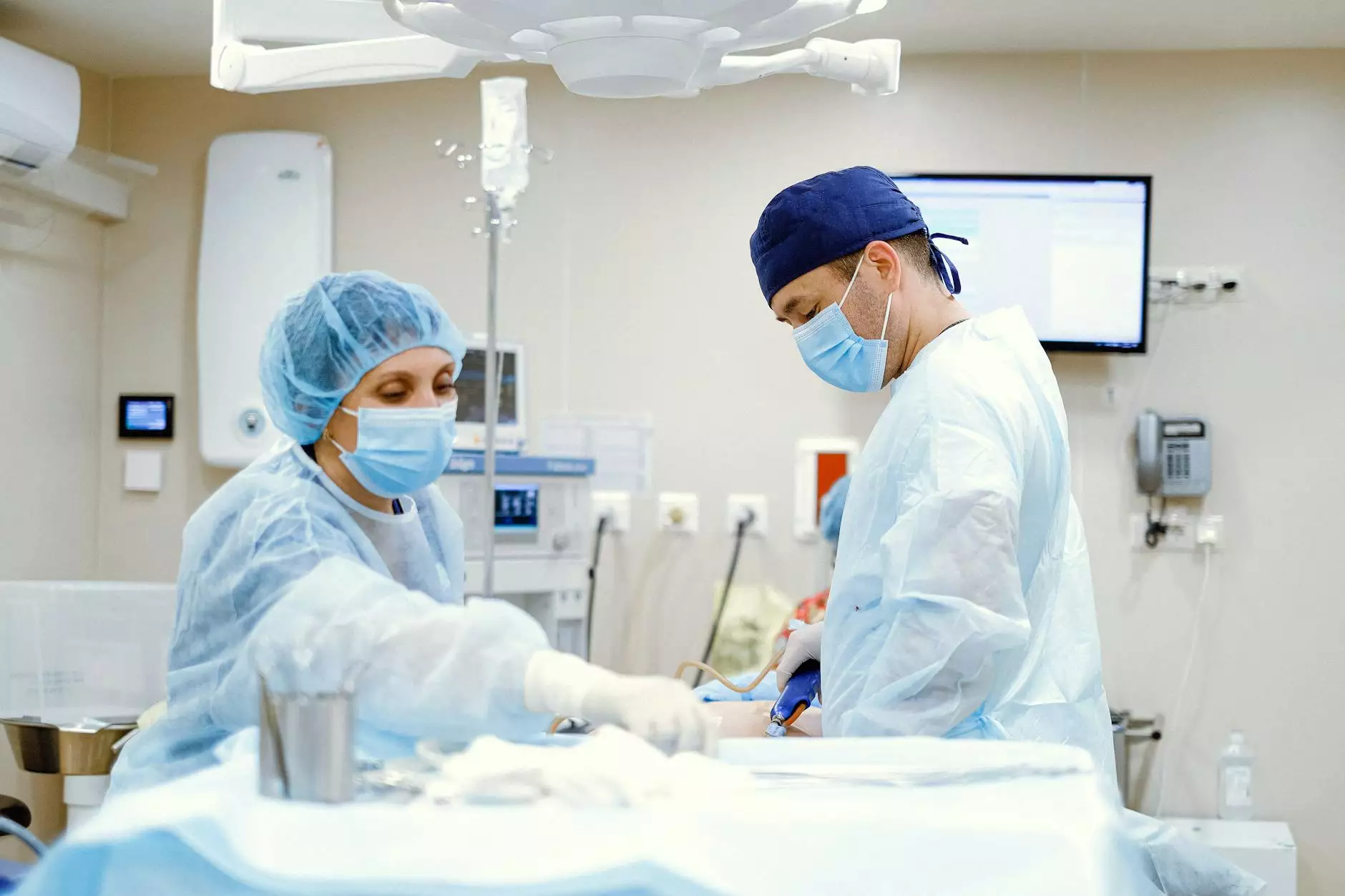Understanding Leg Inflammation: Causes, Symptoms, and Treatment

Leg inflammation is a significant health issue that many individuals encounter, leading to discomfort and dysfunction in daily activities. It often signifies underlying medical conditions that require prompt attention. In this article, we will delve deep into the causes, symptoms, diagnosis, and treatment options for leg inflammation, while emphasizing the importance of consulting with vascular medicine specialists to obtain the best care available.
What is Leg Inflammation?
Leg inflammation refers to the swelling, redness, and warmth experienced in the tissues of the leg. This condition can affect various parts of the leg, including the skin, muscles, veins, and joints. Inflammation occurs as a natural response by the body's immune system to injury or infection. However, when it becomes chronic or severe, it requires medical intervention.
Causes of Leg Inflammation
Understanding the underlying causes of leg inflammation is crucial for effective management. The primary causes can be categorized into several broad categories:
- Injury: Trauma due to accidents, falls, or sports-related activities can lead to localized inflammation.
- Infections: Bacterial, viral, or fungal infections can cause significant swelling as the body attempts to fight off pathogens.
- Vascular Issues: Conditions such as deep vein thrombosis (DVT) or chronic venous insufficiency can result in inflammation due to blood flow problems.
- Arthritis: Various forms of arthritis, including osteoarthritis and rheumatoid arthritis, commonly lead to joint inflammation in the legs.
- Autoimmune Diseases: Conditions like lupus or vasculitis can provoke systemic inflammation, affecting the legs specifically.
- Allergic Reactions: Allergens can cause localized swelling and irritation in individuals with sensitivities.
- Medications: Certain medications, including non-steroidal anti-inflammatory drugs (NSAIDs), may cause side effects resulting in swelling.
Symptoms of Leg Inflammation
Individuals experiencing leg inflammation may present with various symptoms, which can vary in intensity based on the underlying cause:
- Swelling: The most prominent symptom, often affecting the entire leg or localized areas.
- Redness: The inflamed area may appear redder than the surrounding skin.
- Heat: Increased warmth in the affected area when touched.
- Pain: Range from mild discomfort to severe pain, especially when moving or putting weight on the leg.
- Stiffness: Difficulty moving the leg or joint stiffness may accompany inflammation.
- Fever: In cases of infection, a fever may also be present.
How Is Leg Inflammation Diagnosed?
Diagnosing leg inflammation involves a comprehensive evaluation by healthcare professionals, particularly vascular medicine specialists. The diagnostic process typically includes:
- Medical History: A thorough discussion regarding the patient's medical history, recent injuries, or illnesses.
- Physical Examination: Assessing the leg for signs of swelling, redness, warmth, and tenderness.
- Imaging Tests: Diagnostic imaging such as ultrasound, X-rays, or MRI may be conducted to identify underlying conditions.
- Blood Tests: Laboratory tests can help detect infection, inflammation markers, or conditions like rheumatoid arthritis.
Treatment Options for Leg Inflammation
Effectively treating leg inflammation depends on the underlying cause. Here are several common treatment strategies:
1. Medication
Anti-inflammatory medications, such as NSAIDs, may help reduce swelling and alleviate pain. In cases of infection, antibiotics or antiviral drugs may be necessary. Corticosteroids can also be prescribed to reduce inflammation in autoimmune disorders.
2. Physical Therapy
A tailored physical therapy program can assist in reducing inflammation and improving mobility. Techniques may include:
- Stretching Exercises: To enhance flexibility and reduce stiffness.
- Strengthening Exercises: To support muscle function and joint stability.
- Massage Therapy: To promote blood circulation and reduce tension in affected areas.
3. Lifestyle Modifications
Adopting healthy lifestyle choices can be beneficial in managing leg inflammation. Suggested modifications include:
- Regular Exercise: Engaging in low-impact activities such as swimming or cycling.
- Weight Management: Maintaining a healthy weight to reduce stress on leg joints.
- Healthy Diet: Consuming an anti-inflammatory diet rich in fruits, vegetables, whole grains, and omega-3 fatty acids.
- Hydration: Staying well-hydrated to support overall health.
4. Advanced Interventions
If conservative measures fail, advanced medical interventions may be necessary:
- Compression Therapy: Graduated compression stockings can improve venous return and reduce swelling.
- Minimally Invasive Procedures: Endovenous laser therapy (EVLT) or sclerotherapy for varicose veins may be warranted.
- Injections: Corticosteroid injections can provide rapid relief in certain inflamed joints.
- Surgery: In severe cases, surgical intervention might be needed to address underlying issues, such as removing inflamed tissue or repairing damaged vessels.
When to Seek Medical Attention
It is important to recognize when leg inflammation requires medical intervention. Seek immediate care if you experience:
- Severe swelling or pain that appears suddenly.
- Skin that is hot, red, or tender to the touch.
- Fever accompanying leg inflammation.
- Difficulty breathing or chest pain (which may indicate a DVT).
Conclusion
In summary, leg inflammation is a condition that can arise from various underlying issues and may significantly impact your quality of life. Early diagnosis and an appropriate treatment plan tailored by healthcare professionals, particularly those specializing in vascular medicine, are essential for effective management. By understanding the causes, symptoms, and treatment options available, individuals can take proactive steps in their health management journey.
For personalized medical advice and treatment options specific to your case of leg inflammation, consider consulting with the experts at Truffles Vein Specialists. Our dedicated team is committed to providing comprehensive care that addresses your needs and restores your mobility.









